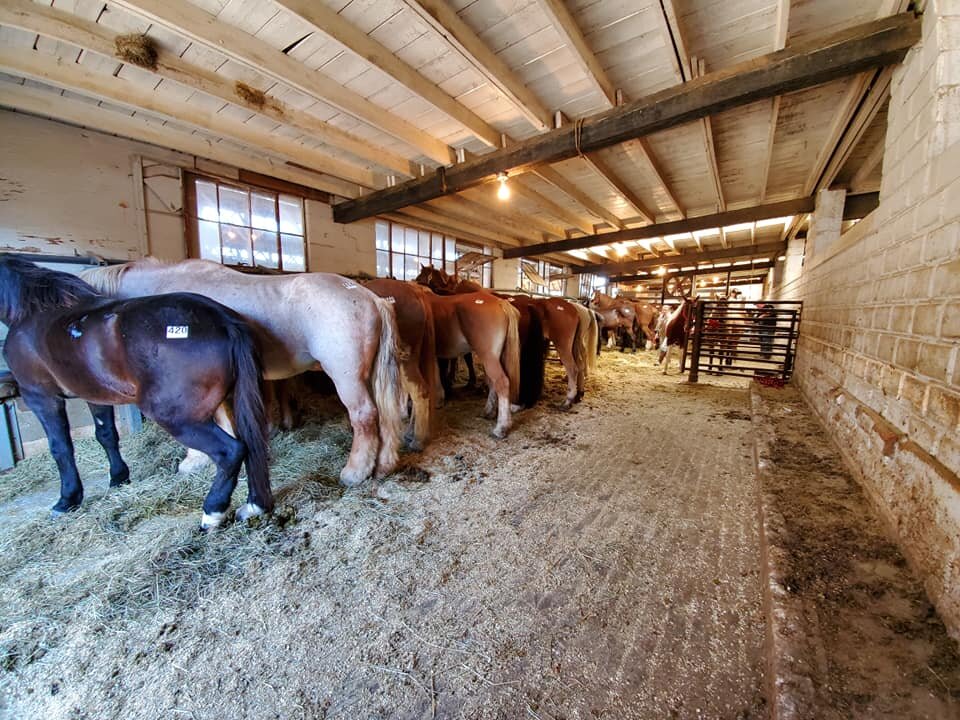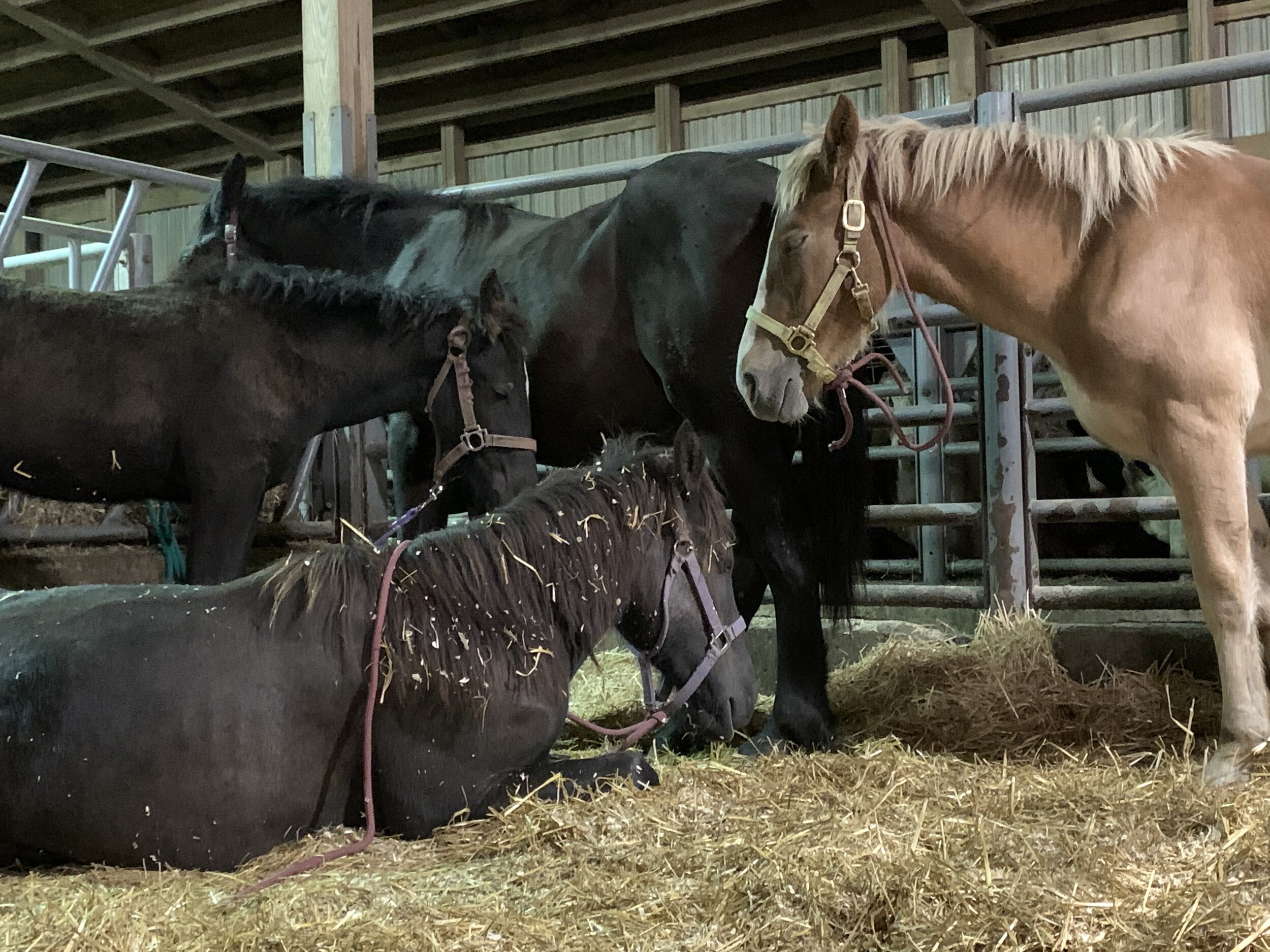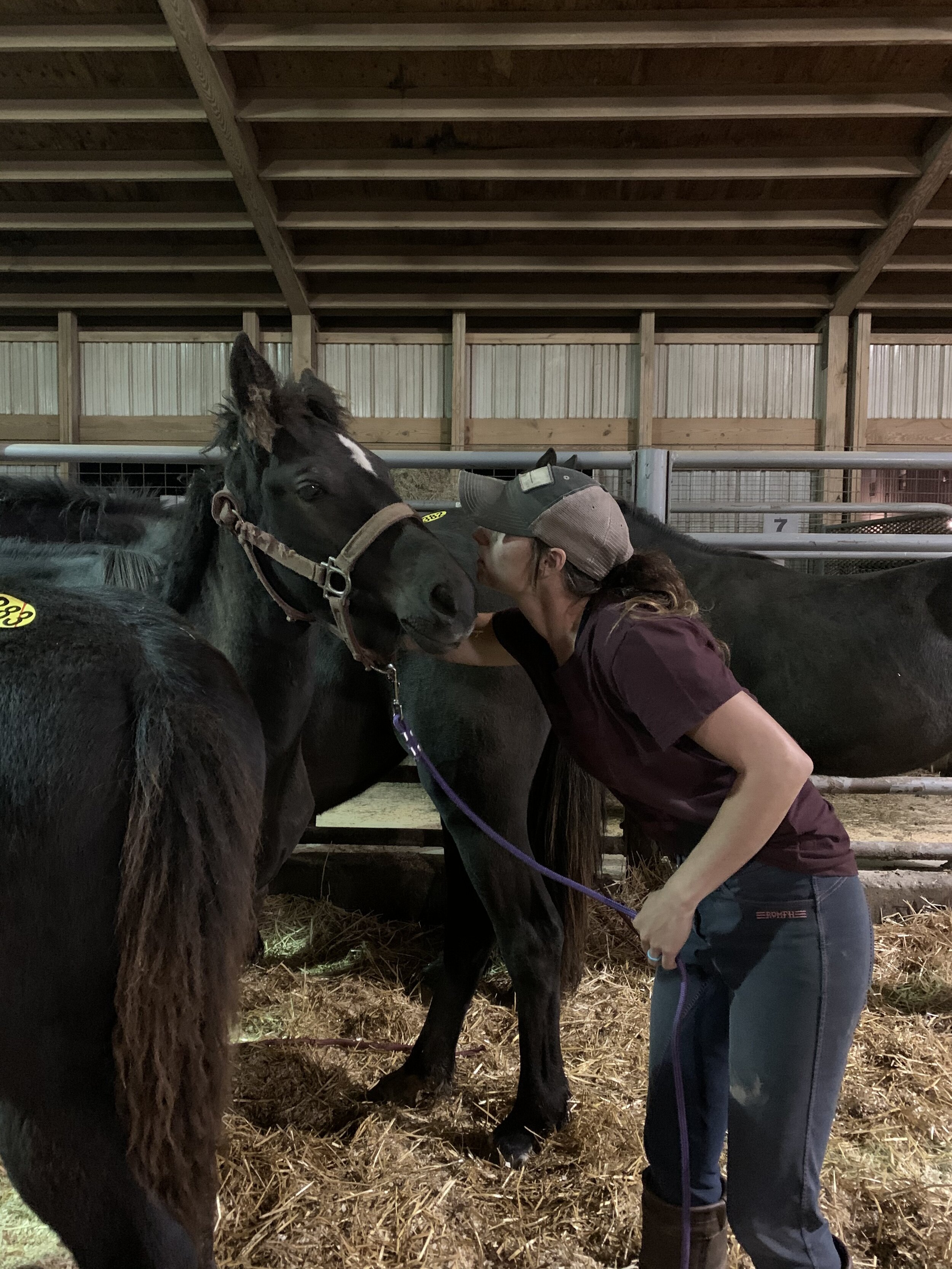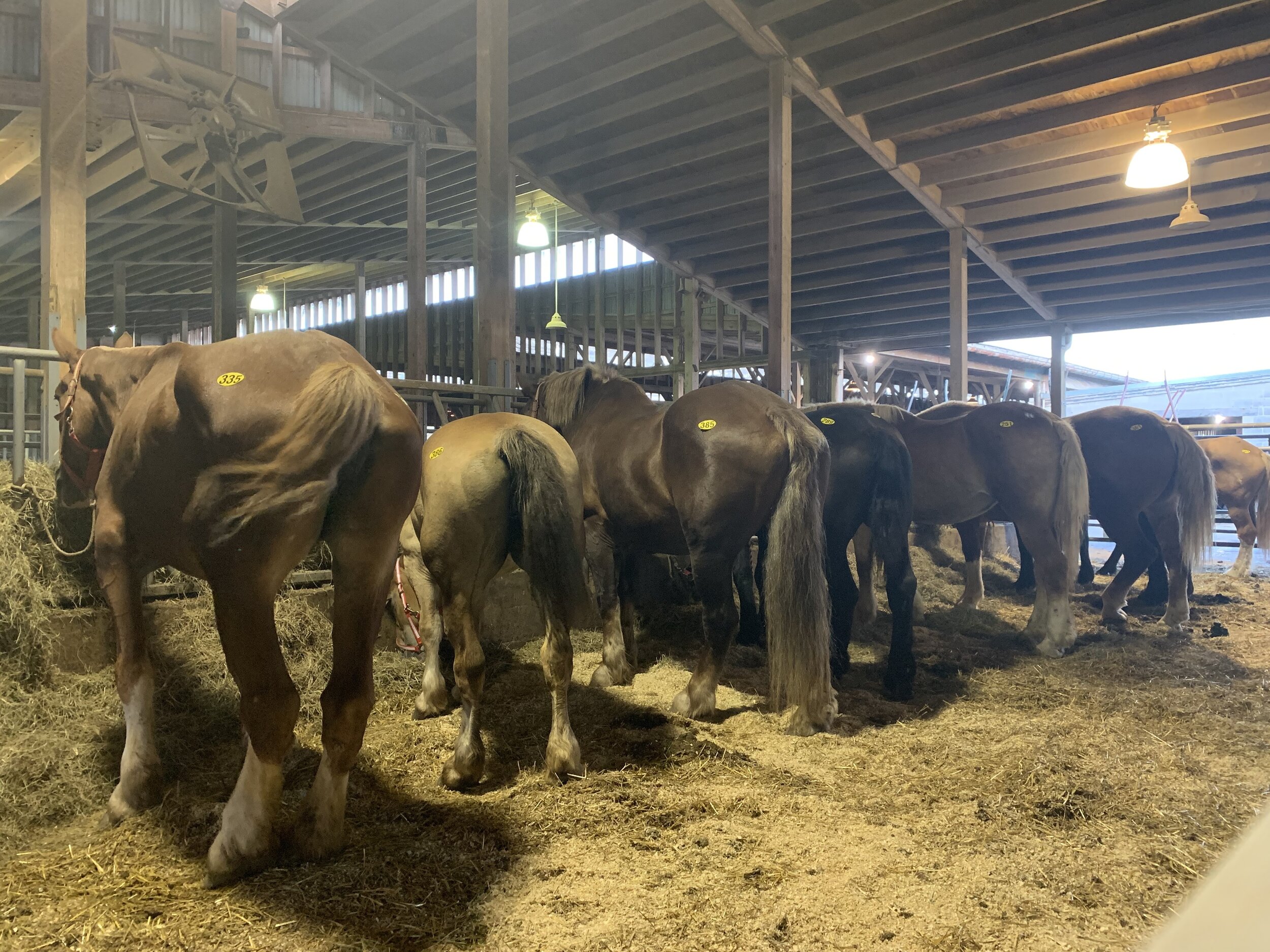Putting an End to Horse Slaughter - We’re so close!
The Save America's Forgotten Equines (SAFE) Act would expand the Dog and Cat Meat Prohibition Act passed in the 2018 Farm Bill to include equines, permanently protecting American horses from slaughter. On May 18, 2023, the SAFE Act H.R. 3475 was reintroduced in the House.
Sample Letter:
Dear ____________________,
As your constituent, I am writing to ask that you cosponsor and support the Save America’s Forgotten Equines (SAFE) Act (H.R.3475). I have no monetary interest in this matter, I am simply asking you to do the right thing.
This Act bans the sale or transport of a horse or other equines for human consumption. If you already advocate the passage of H.R.3475, I thank you. If not, I ask you to consider why so many Americans oppose horse slaughter. Americans don't eat horses. Horses are our companions in sport, recreation, work, and entertainment; and are a living symbol of the pioneer spirit. Horses are not bred as a food animal, and thus are not raised in or under FDA rules for "food animals." Slaughter is not a humane death, and is not equivalent to euthanasia. The methods used to slaughter horses were designed for cattle and smaller animals, and are not effective nor humane for any equine. Captive Bolt pistols meant to render the horse unconscious rarely do so on the first strike, and horses must endure being struck multiple times in the face or head with a 4 inch bolt. Often horses are not rendered fully unconscious, and are slaughtered while still aware. History has shown that the horse slaughterhouses that had previously operated in the US were a drain to their community; creating multiple environmental problems, a decrease in home and land values, and a large social stigma about the community. Proponents cite that horse slaughter "saves" surplus horses from neglect, abandonment, and starvation. In fact, neglect, abandonment, and starvation are illegal. Offenders should be criminally charged, and not allowed to profit from their crimes. Additionally, an increase of slaughtered US horses has not reduced known causes of neglect and starvation in the past. Animal cruelty should never substitute for responsible animal stewardship. Excess horses are human created, resulting from over breeding in industries such as Premarin production (Hormone Replacement Therapy drugs made from pregnant mares urine), the horse racing industry, the show horse industry, riding stables, etc. Regulators ought to focus on reducing irresponsible breeding and humane choices for unwanted horses. Please support the passage of H.R.3475 the Save America’s Forgotten Horses (SAFE) Act. Please vote to stop our American horses from being slaughtered.
Thank you, __________________
There’s Good News!
Through advocacy efforts over the past 15+ years, the number of US horses being shipped out of the country for slaughter/human consumption has gone down! But even one horse facing such gruesome cruelty is too many and that’s why we need your help now more than ever to urge your Congressional Representatives to pass the SAFE Act (Save America’s Forgotten Equines), H.R. 3475!
Contact your Congressional Representatives today!
You can contact your Congressional Representatives office by phone and write them a letter stating clear reasons that you don't support our US horses being slaughtered for human consumption. Here's a sample letter, but feel free to personalize! If you have an experience with a special horse, let your Representatives know! The most successful letters are concise, factual, and professional.
Did you Know?
Draft horses comprise the smallest percentage of horses within the US, yet they are grossly over represented in the number of horses being shipped for slaughter every year. These horses are being slaughtered for human consumption for consumers in Canada, Europe, and Japan.
These are our nation’s horses, majestic animals that have played an enormous part in building this country. Horses are purchased by meat buyers who lurk through public livestock auctions picking up any horse that will make them a profit with the Canadian, Mexican, and Japanese slaughterhouses. At these auctions, we see a child’s first pony, tired plow horses, broken racehorses, horses who carried visitors on their first trail ride, and the backyard, loving companions, all rewarded after a lifetime of service and companionship with a terrifying, gruesome, and painful death.
Poe was rescued at a livestock auction on New Year’s Eve 2021. He was tied to the fence with a chain around his neck that had rusted shut.
Poe four months after his rescue! He is strong, healthy, and ready to find someone to love and cherish him for the rest of his days.
Why Should We Care?
Many people believe that it would be more humane to have horses slaughtered in the US than outside of the country because the USDA would better monitor the process. However, horse slaughter is never humane, even in the best of circumstances, and we don't want to see it anywhere. Here's a news story from Canada, where current methods mirror those historically used in the US. It would be naive to believe that the same errors and mismanagement could not also occur in US plants. Expert Temple Grandin speaks about why this method is absolutely unacceptable and inhumane. This video is not overly graphic, so do not be afraid to watch.
What Does Gentle Giants Do About It?
We go head first into the East Coast horse auctions frequented by meat buyers, and we outbid the "meat men". We believe this is the best way to stop the flow of profits into the slaughter system as our donor’s money goes directly to purchasing the horse and no money goes into the hands of a meat buyer or horse broker. Gentle Giants is conscientious to only bid on horses who are targeted by the meat buyers. Very few people are aware that many privately owned horses sold at auction are in grave danger of being purchased for slaughter.
There are More Ways to Help!
Support our mission by donating, volunteering, adopting, or sponsoring a horse!
Horse ownership comes with a great deal of responsibility. One of the greatest responsibilities is establishing an end of life plan for your horse(s) and preparing for the difficult decision of rehoming or surrendering your horse(s) if you are no longer able to provide care for them.
Before making the decision to send your horse to an auction where their fate may be in the hands of the meat men, we strongly encourage horse owners to seek placement for their horse, either through a private home or a rescue. For horses with chronic ailments or other issues that are seriously impacting their quality of life, please consider humane euthanasia at home. Our horses give us their all, it’s our responsibility to take care of them and return their loyal service with a plan that is in their best interest.





